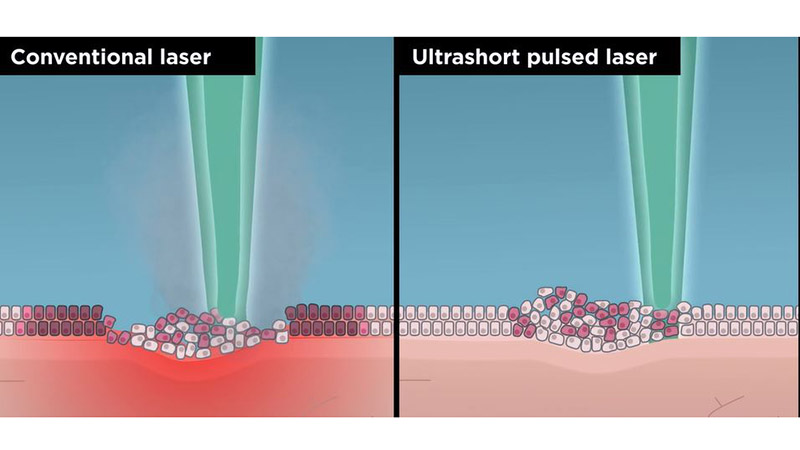Published:

Heriot-Watt University along with University of Leeds have demonstrated a laser process that can be deployed using optical fibres that are ideally suited for endoscopic surgery – which could be used for improved treatment of bowel cancer.
According to Cancer Research UK data, the second highest number of cancer deaths in the UK occurs due to bowel cancer.
The National Bowel Cancer Screening Programme is proving effective, with a 16 per cent survival benefit for screened individuals. Importantly, there has been a shift in the detection to earlier disease with screening colonoscopy picking up polyps in 40 per cent of cases and cancers in 10 per cent of cases.
Existing procedures, using relatively cumbersome electrical cutting devices to apply heat to the tissue, are challenging to perform due to restricted access and lack of fine control for the surgeon. This results in a non-ideal procedure sometimes resulting in very serious complications such as bowel perforation.
In contrast, ultrashort picosecond pulsed lasers deliver energy in such short pulses that thermal effects are minimal and tissue can be ablated with the resulting crater restricted only to the area on which the pulse was incident. Therefore, by precisely and flexibly delivering the energy to specific tumorous areas they can be cleanly removed minimising both damage to surrounding tissue and the risk of bowel perforation. Unfortunately, the use of lasers for endoscopic surgery has been severely limited due to the lack of a suitable flexible delivery system capable of handling the high intensities required.
Dr Jon Shephard from the Institute of Photonics and Quantum Sciences said: “Through EPSRC funding we developed fibres which can deliver wavelengths and pulse energies previously unattainable.
“They have a small diameter (on the scale of a human hair) and are highly flexible and open up new routes for minimally invasive surgical therapies where the action of the laser is required within the body.
“These fibres can deliver ultrashort laser pulses with adequate power for tissue removal, can be bent to very small diameters (a few mm) and significantly outperform the current state-of-art technologies for laser delivery in surgery.
“The stages of colon cancer are determined by the extent of spread through the layers of the bowel wall. However, the surgical removal of colon polyps or cancers using conventional techniques can damage critical underlying structures and may lead to serious post‐surgery complications such as bowel perforation.
“In this study we have successfully demonstrated the relevance of ultrashort pulsed lasers for avoiding perforation and thermal damage in colon tissue resection.
“We are now combining all this novel technology to create a novel steerable laser surgical tool and develop a life-saving colorectal surgical procedure which will also be transferable to other life-threatening conditions.”
View the video below:
Susan Kerr
Communications Officer
T: 0131 451 3242
E: susan.kerr@hw.ac.uk